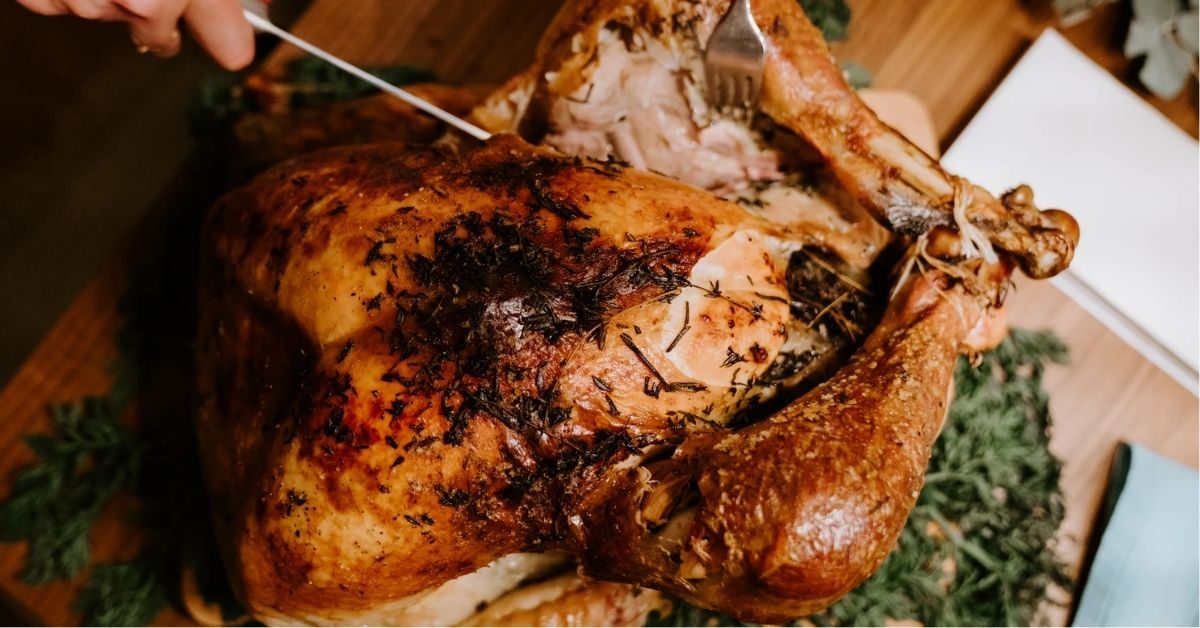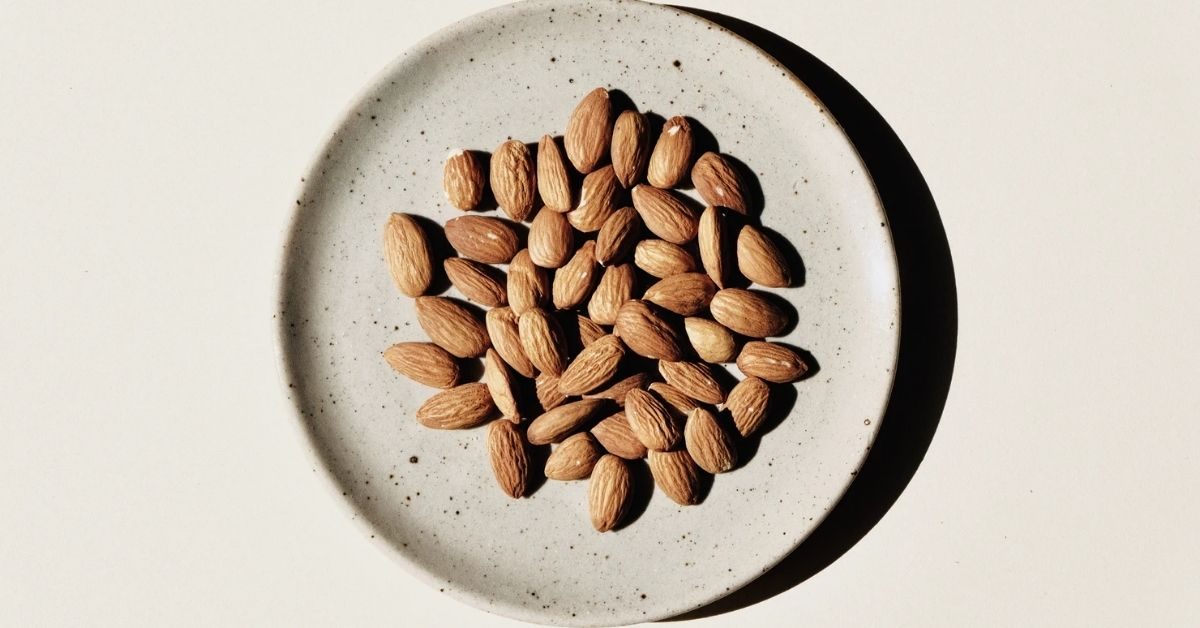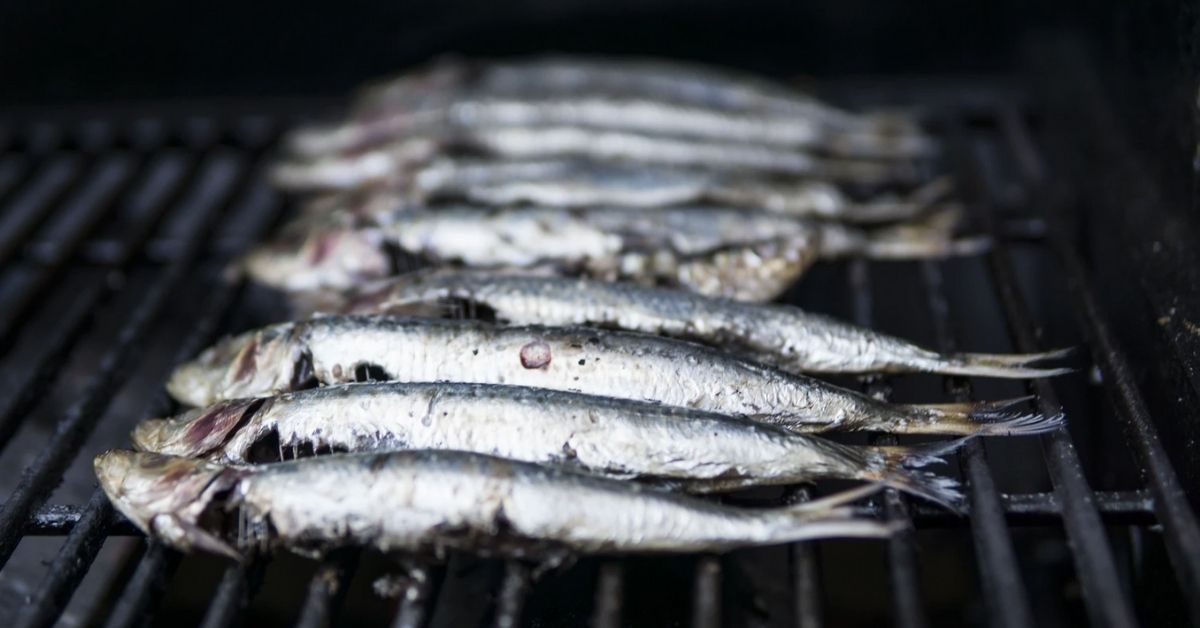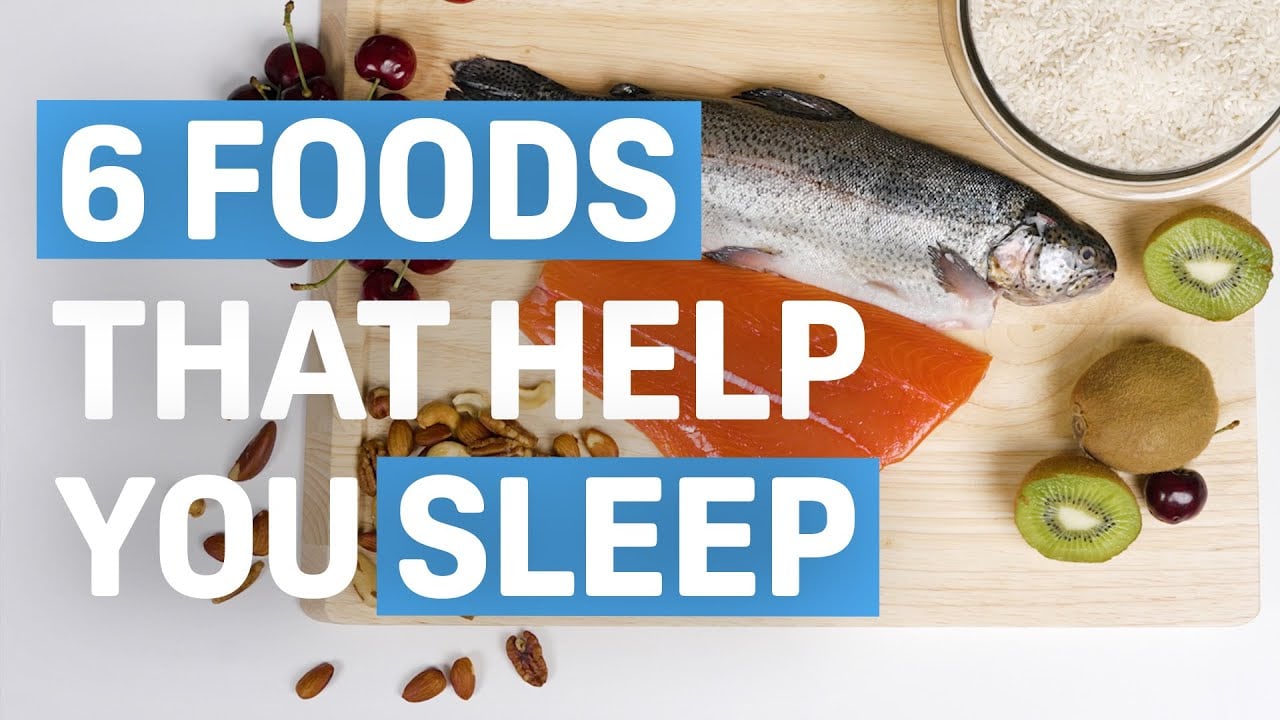What are the best foods to help you fall asleep?
We all know that a glass of milk before bed helps you go to sleep, but what about other foods and beverages?
When we sleep, our body cycles through important restorative processes that help us feel refreshed and energized the next morning.
When you have trouble falling asleep or you constantly wake-up in the middle of the night, your body is exhausted. Your brain gets cloudy.
Nights without sleep produce low energy levels and make you feel like a car without gas.
Luckily, there are plenty of sleep-promoting food options to help you fill your tank.
Read on to find the best foods to inspire fatigue and send you straight to bed.
Here are the best foods to help you fall asleep faster
Looking for the best meals for improved sleep quality? Here’s a list of the top foods to help you fall asleep.
It may surprise you to learn that a late-night snack of walnuts washed down with a glass of cherry juice will help you rest more soundly.
Read on to learn more.
#1 – Look for foods that are a high source of tryptophan

Considered an “essential” amino acid, tryptophan is not produced naturally in people. You can only consume it through plants and animals.
Tryptophan has been shown to help adults with insomnia, depression, and severe PMS symptoms.
Once consumed, the amino acid tryptophan raises the melatonin and serotonin levels in the body.
Turkey is the most well-known source of tryptophan. It is a popular belief that consuming this turkey dinner is what leads to drowsiness on Thanksgiving.
Remember though, while turkey is a rich source of the amino acid tryptophan, it’s also the combination of large amounts of carbohydrate-rich foods and alcohol (both raise blood insulin levels) that have sleep-inducing effects on people during the holidays.
If you don’t fancy a big turkey right before bed, other tryptophan-rich foods include whole milk and canned tuna. Both of these contain over 200 more milligrams of tryptophan than turkey (or chicken).
Oats, cheese, hummus, and whole wheat bread all contain varying amounts of tryptophan. Peanuts, sesame seeds, and pumpkin seeds are also good sources.
Tart cherry juice contains tryptophan. Studies have found that consuming one glass of tart cherry juice an hour before bed may help insomniacs fall asleep faster.
When purchasing cherry juice, be careful to get one without a lot of sugar. Sugary foods act as a stimulant and keep you awake.
Interestingly, foods with tryptophan often also contain high levels of vitamin B6, a stress-relieving supplement that also has sleep-promoting properties.
#2 – Find melatonin-rich foods

If you are looking for ways to fall asleep quicker, you have probably heard of melatonin.
Melatonin is a sleep-inducing hormone that’s naturally produced in the brain. It is a key factor in maintaining your circadian rhythm (the internal clock responsible for wake and sleep cycles).
Low levels of melatonin make it harder to fall and stay asleep.
Melatonin levels are affected by a variety of factors such as stress, jetlag, poor sleep environment, and especially light exposure.
Taking melatonin supplements is a popular way to improve your quality of sleep. Supplement tablets are sold over the counter at most grocery stores and pharmacies.
If you don’t want to take a melatonin tablet, there are plenty of foods you can eat instead.
Milk that is warm is one of the best producers of melatonin. This is one of the reasons why it is given to babies and infants.
Sour cherries are also top of the list, which is another reason you should drink tart cherry juice before bed.
A bedtime snack of pistachios and almonds will help promote quality sleep.
Honey in tea also produces melatonin and is a good replacement for sugar cravings.
Oily fish such as salmon and sardines are also a great source of melatonin. Pair either with a side of melatonin-rich tart cherries and you’ll have the perfect meal for deep, restful sleep.
#3 – Try foods with lots of magnesium
Magnesium is one of the most important minerals for the human body. It is responsible for lowering blood pressure, maintaining bone strength, and keeping your heart rate steady.
Ideally, adult women should receive between 310-320 mg per day, while adult men should receive 400-420.
A lack of magnesium can lead to disrupted REM sleep and frequent nocturnal awakenings.
A severe deficiency can create serious health issues such as heart disease, diabetes, or osteoporosis.
Magnesium improves sleep by activating the nervous system specifically responsible for feelings of calm and ease. It also regulates neurotransmitters and increases the production of melatonin.
As acupuncturist, Lauren Hurst, explains:
“Magnesium is so beneficial for those that have trouble falling asleep, staying asleep throughout the night, or consistently waking up too early. To help with insomnia, magnesium is best taken with dinner or an hour before bedtime.”
If you want to improve your sleep quality with magnesium, try one of the following magnesium-rich foods:
- Green, leafy vegetables (such as spinach or kale)
- Beans
- Peas
- Soybeans
- Bananas
- Whole-grain cereals
When preparing bedtime foods, keep in mind that whole foods are the best. Some mineral benefits can be lost during processing of foods.
Certain nuts are also a good source of magnesium, specifically cashews, almonds, and Brazil nuts.
If you are hoping to treat your insomnia with an intake of magnesium, be sure to consult your doctor first.
#4 – Eat foods that are high in omega-3 fatty acids

Omega-3 fatty acids are vital to maintaining your health.
Sleep deprivation studies show that an increase of omega-3 fatty acids improves both sleep quality and memory loss, a common symptom of chronic insomnia.
Eating fish is one of the best ways to get omega-3 fatty acids.
Oil from fatty fish helps lower triglyceride levels, a blood fat that increases your risk for heart disease and stroke.
An important omega-3 fatty acid is docosahexaenoic acid (DHA). This long-chain omega-3 acid is responsible for brain development in children and adults.
Although small amounts of DHA are naturally produced in the body, its full effects are only felt when consumed through food.
Researchers have found that higher levels of DHA in the blood lead to shorter times falling asleep and longer sleep duration.
Excellent sources of omega-3 fatty acids can be found in cold-water fatty fish such as salmon, tuna, sardines, mackerel, and lake trout.
If you do not eat fish, you will also find omega-3 acids in walnuts, chia seeds, and soybeans.
Certain organic foods such as grass-fed meat, dairy, and farm fresh eggs are also good sources.
#5 – Try a sleep-inducing herbal tea

The use of herbal tea as a natural remedy for falling asleep has been around for centuries. The health benefits of these herbs bolster your body’s natural production of serotonin and melatonin.
Chamomile tea is an effective natural source for inducing drowsiness. It contains apigenin, one of the antioxidants that researchers claim reduces anxiety and promotes sleep.
A study of elderly adults found that nursing home residents reported significantly improved sleep when taking chamomile as part of their bedtime routine.
Sleep experts have also found passionflower tea to be a good sleep aid.
Studies show that passionflower extract significantly improves the first stage of REM sleep (the sleep cycle where deep sleep happens).
Passionflower contains gamma-aminobutyric acid (GABA). When this chemical interacts with neurotransmitters, it calms your nerves rather than stimulates them.
In addition to insomnia, research suggests that passionflower may also help to reduce stress and anxiety.
Other herbal teas to help you fall asleep faster are:
- Lavender
- Valerian root
- Lemon balm
- Magnolia
Mixing tea with warm milk is especially effective for those who suffer from frequent sleep disruptions.
For the best results, drink the tea at least two hours before bedtime. Be careful not to purchase tea with added caffeine.
Drink in moderation and consult your doctor if you are nursing or pregnant.
In Summary
Now that you know the foods to help you fall asleep fast, you can plan a diet with sleep-promoting effects.
Remember that although turkey is known to bring on fatigue, whole milk and tuna actually contain greater amounts of sleep-inducing tryptophan.
If you prefer an herbal remedy, drinking chamomile or lavender tea two hours before bedtime will help you enter restful REM sleep at night.
Great snacks to have in your bedroom include bananas, peanut butter, sunflower seeds, and hummus.If you’re still looking for the best ways to get a good night’s sleep, check out our Ultimate Guide to Falling Asleep Easier and Quicker.

Welcome to Snoozerville! I’m Dr. Alex Hartley, your guide to the world of restful sleep. With a Ph.D. in Sleep Science and years of experience as a sleep therapist, I’ve dedicated my life to understanding and improving sleep quality. My passion lies in uncovering the mysteries of sleep and sharing practical, science-backed advice to help you achieve the best rest possible. Beyond my academic pursuits, I’m an advocate for mindfulness and relaxation techniques, which I incorporate into my daily routine. At Snoozerville, I aim to transform your nights, combining the latest research with easy-to-implement tips. Whether you’re a chronic insomniac or just looking to improve your sleep hygiene, join me on this journey towards peaceful, rejuvenating sleep.

